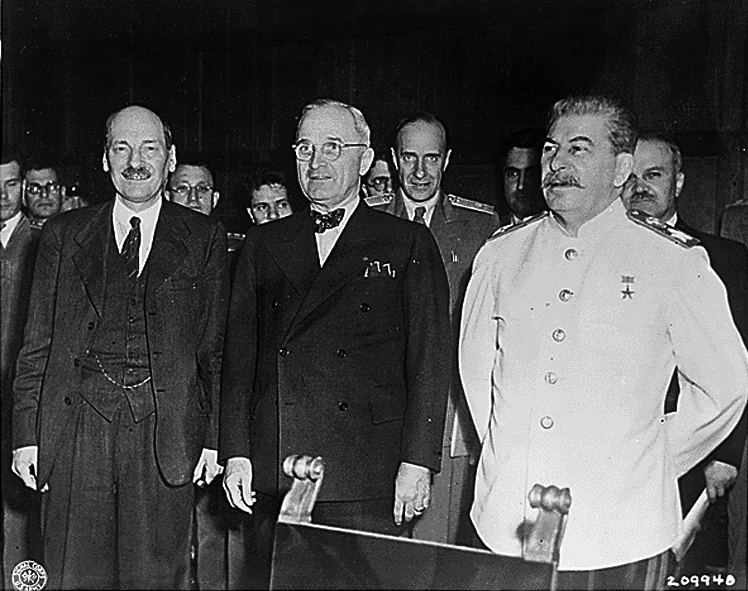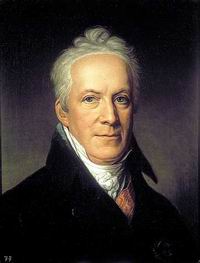|
Konarzewo, Goleniów County
Konarzewo () is a village in the administrative district of Gmina Nowogard, in Goleniów County, West Pomeranian Voivodeship, in north-western Poland. It lies approximately northeast of Nowogard, northeast of Goleniów and northeast of the regional capital, Szczecin. History The area became part of the emerging Polish state under its first ruler Mieszko I around 967, and following Poland's fragmentation it formed part of the Duchy of Pomerania. The estate of Kniephof originally was a possession of the German noble clan von Dewitz, of Mecklenburg and Pomerania, which eventually sold it to Prussian Major August Friedrich von Bismarck-Schönhausen. By 1780 the estate included a manor house and four family dwellings. The 19th century German chancellor, Otto von Bismarck (b. 1815), lived at Kniephof as a child, and his sister Malwine was born there in 1827.George Hesekiel: ''Das Buch vom Fürsten Bismarck''. Bielefeld und Leipzig 1873p. 55./ref> From 1839 to 1845, Otto von Bi ... [...More Info...] [...Related Items...] OR: [Wikipedia] [Google] [Baidu] |
List Of Sovereign States
The following is a list providing an overview of sovereign states around the world with information on their status and recognition of their sovereignty. The 205 listed states can be divided into three categories based on membership within the United Nations System: 193 member states of the United Nations, UN member states, two United Nations General Assembly observers#Current non-member observers, UN General Assembly non-member observer states, and ten other states. The ''sovereignty dispute'' column indicates states having undisputed sovereignty (188 states, of which there are 187 UN member states and one UN General Assembly non-member observer state), states having disputed sovereignty (15 states, of which there are six UN member states, one UN General Assembly non-member observer state, and eight de facto states), and states having a political status of the Cook Islands and Niue, special political status (two states, both in associated state, free association with New ... [...More Info...] [...Related Items...] OR: [Wikipedia] [Google] [Baidu] |
Duchy Of Pomerania
The Duchy of Pomerania (; ; Latin: ''Ducatus Pomeraniae'') was a duchy in Pomerania on the southern coast of the Baltic Sea, ruled by dukes of the House of Pomerania (''Griffins''). The country existed in the Middle Ages between years 1121–1160, 1264–1295, 1478–1531, and 1625–1637. The duchy originated from the realm of Wartislaw I, a Slavic Pomeranian duke, and was extended by the Lands of Schlawe and Stolp in 1317, the Principality of Rügen in 1325, and the Lauenburg and Bütow Land in 1455. During the High Middle Ages, it also comprised the northern Neumark and Uckermark areas as well as Circipania and Mecklenburg-Strelitz. The Duchy of Pomerania was established as a vassal state of Poland in 1121, which it remained until the fragmentation of Poland after the death of Polish ruler Bolesław III Wrymouth in 1138. Afterwards the Dukes of Pomerania were independent, and later were vassals of the Duchy of Saxony from 1164 to 1181, of the Holy Roman Empire from 1 ... [...More Info...] [...Related Items...] OR: [Wikipedia] [Google] [Baidu] |
Potsdam Agreement
The Potsdam Agreement () was the agreement among three of the Allies of World War II: the United Kingdom, the United States, and the Soviet Union after the war ended in Europe that was signed on 1 August 1945 and published the following day. A product of the Potsdam Conference, it concerned the military occupation and reconstruction of Germany, its border, and the entire European Theatre of War territory. It also addressed Germany's demilitarisation, reparations, the prosecution of war criminals and the mass expulsion of ethnic Germans from various parts of Europe. France was not invited to the conference but formally remained one of the powers occupying Germany. Executed as a communiqué, the agreement was not a peace treaty according to international law, although it created accomplished facts. It was superseded by the Treaty on the Final Settlement with Respect to Germany signed on 12 September 1990. As De Gaulle had not been invited to the Conference, the French resi ... [...More Info...] [...Related Items...] OR: [Wikipedia] [Google] [Baidu] |
Flight And Expulsion Of Germans (1944–1950)
During the later stages of World War II and the post-war period, Reichsdeutsche (German citizens) and Volksdeutsche (ethnic Germans living outside the Nazi state) fled and were expelled from various Eastern Europe, Eastern and Central European countries, including Czechoslovakia, and from the former German provinces of Province of Lower Silesia, Lower and Province of Upper Silesia, Upper Silesia, East Prussia, and the eastern parts of Province of Brandenburg, Brandenburg (Neumark) and Province of Pomerania (1815–1945), Pomerania (Farther Pomerania), which were annexed by Provisional Government of National Unity of Poland and by the Soviet Union. The idea to expel the Germans from the annexed territories had been proposed by Winston Churchill, in conjunction with the Polish government-in-exile, Polish and Czechoslovak government-in-exile, Czechoslovak governments-in-exile in London since at least 1942. Tomasz Arciszewski, the Prime ministers of the Polish government-in-exile, P ... [...More Info...] [...Related Items...] OR: [Wikipedia] [Google] [Baidu] |
Klaus Von Bismarck
Klaus von Bismarck (6 March 1912 – 22 May 1997) was the Director General of the Westdeutscher Rundfunk (West German Broadcasting) from 1961 to 1976, and the president of the ARD broadcasting association in 1963-1964. He was also the president of the German Evangelical Church Assembly from 1977 to 1979 and a member of its presidium from 1950 to 1995, as well as president of the Goethe-Institut from 1977 to 1989. During World War II, Bismarck served as an officer in the Wehrmacht. He was a recipient of the Knight's Cross of the Iron Cross with Oak Leaves. According to his memoirs, published in 1992, while serving as an adjutant on the Russian front in 1941 he refused to obey Hitler's Commissar Order to execute all captured Communist political commissars attached to the Soviet Army. He was a great-great nephew of German Chancellor Otto von Bismarck, and was the son of Gottfried von Bismarck (1881–1928). Klaus von Bismarck was the last owner of the family's estates in former ... [...More Info...] [...Related Items...] OR: [Wikipedia] [Google] [Baidu] |
Province Of Pomerania (1815–1945)
The Province of Pomerania (; ) was a Provinces of Prussia, province of Prussia from 1815 to 1945. Pomerania was established as a province of the Kingdom of Prussia in 1815, an expansion of the older Brandenburg-Prussia province of Province of Pomerania (1653–1815), Pomerania, and then became part of the German Empire in 1871. From 1918, Pomerania was a province of the Free State of Prussia until it was dissolved following World War II by decree of the Allied Control Council with the de jure abolition of Prussia on 25 February 1947, and its territory divided between Poland and Allied-occupied Germany. The city of Stettin (present-day Szczecin, Poland) was the provincial capital. Etymology The name ''Pomerania'' comes from Slavic languages, Slavic , which means "Land at the Sea". Overview The province was created from the Province of Pomerania (1653–1815), former Prussian Province of Pomerania, which consisted of Farther Pomerania and the southern Western Pomerania, and forme ... [...More Info...] [...Related Items...] OR: [Wikipedia] [Google] [Baidu] |
Jarchlino
Jarchlino ()''Ortsnamenverzeichnis der Ortschaften jenseits von Oder und Neiße'' by M. Kaemmerer is a village in the administrative district of Gmina Nowogard, within Goleniów County, West Pomeranian Voivodeship, in north-western Poland. It lies approximately east of Nowogard, north-east of Goleniów, and north-east of the regional capital Szczecin. The village has a population of 250. Notable residents * Klaus von Bismarck (1912–1997), Director General of the Westdeutscher Rundfunk, President of the ARD, the German Evangelical Church Assembly and the Goethe Institute The Goethe-Institut (; GI, ''Goethe Institute'') is a Nonprofit organization, nonprofit German culture, cultural organization operational worldwide with more than 150 cultural centres, promoting the study of the German language abroad and en ... References Villages in Goleniów County {{Goleniów-geo-stub ... [...More Info...] [...Related Items...] OR: [Wikipedia] [Google] [Baidu] |
World War II
World War II or the Second World War (1 September 1939 – 2 September 1945) was a World war, global conflict between two coalitions: the Allies of World War II, Allies and the Axis powers. World War II by country, Nearly all of the world's countries participated, with many nations mobilising all resources in pursuit of total war. Tanks in World War II, Tanks and Air warfare of World War II, aircraft played major roles, enabling the strategic bombing of cities and delivery of the Atomic bombings of Hiroshima and Nagasaki, first and only nuclear weapons ever used in war. World War II is the List of wars by death toll, deadliest conflict in history, causing World War II casualties, the death of 70 to 85 million people, more than half of whom were civilians. Millions died in genocides, including the Holocaust, and by massacres, starvation, and disease. After the Allied victory, Allied-occupied Germany, Germany, Allied-occupied Austria, Austria, Occupation of Japan, Japan, a ... [...More Info...] [...Related Items...] OR: [Wikipedia] [Google] [Baidu] |
Minister President Of Prussia
The Minister-President (), or Prime Minister, of Prussia was the head of government of the Prussian state. The office existed from 1848, when it was formed by Frederick William IV of Prussia, King Frederick William IV during the German revolutions of 1848–1849#Prussia, 1848–49 Revolution, until the abolition of Prussia in 1947 by the Allied Control Council. History of the office Under the Kingdom of Prussia the Minister President functioned as the chief minister of the list of monarchs of Prussia, King, and presided over the Landtag of Prussia, Landtag, the Prussian legislature established in 1848. After the unification of Germany in 1871 and until the German revolution of 1918–1919, 1918–1919 Revolution, the office of the Prussian Minister President was usually held by the Chancellor of Germany, Chancellor of the German Empire, beginning with the tenure of Otto von Bismarck. Under the Free State of Prussia the Minister President was the head of the state government in a ... [...More Info...] [...Related Items...] OR: [Wikipedia] [Google] [Baidu] |
Otto Von Bismarck
Otto, Prince of Bismarck, Count of Bismarck-Schönhausen, Duke of Lauenburg (; born ''Otto Eduard Leopold von Bismarck''; 1 April 1815 – 30 July 1898) was a German statesman and diplomat who oversaw the unification of Germany and served as its first Chancellor of Germany, chancellor from 1871 to 1890. Bismarck's ''Realpolitik'' and firm governance resulted in him being popularly known as the Iron Chancellor (). From Junker (Prussia), Junker landowner origins, Otto von Bismarck rose rapidly in Prussia, Prussian politics under King William I, German Emperor, Wilhelm I of Prussia. He served as the Prussian ambassador to Russian Empire, Russia and Second French Empire, France and in both houses of the Landtag of Prussia, Prussian parliament. From 1862 to 1890, he held office as the Minister President of Prussia, minister president and foreign minister of Prussia. Under Bismarck's leadership, Prussia provoked three short, decisive wars against Second Schleswig War, Denmark, Austr ... [...More Info...] [...Related Items...] OR: [Wikipedia] [Google] [Baidu] |
Pomerania
Pomerania ( ; ; ; ) is a historical region on the southern shore of the Baltic Sea in Central Europe, split between Poland and Germany. The central and eastern part belongs to the West Pomeranian Voivodeship, West Pomeranian, Pomeranian Voivodeship, Pomeranian and Kuyavian-Pomeranian Voivodeship, Kuyavian-Pomeranian voivodeships of Poland, while the western part belongs to the German states of Mecklenburg-Western Pomerania and Brandenburg. Pomerania's historical border in the west is the Mecklenburg-Western Pomeranian border ''Urstromtal'', which now constitutes the border between the Mecklenburgian and Pomeranian part of Mecklenburg-Western Pomerania, while it is bounded by the Vistula River in the east. The easternmost part of Pomerania is alternatively known as Pomerelia, consisting of four sub-regions: Kashubia inhabited by ethnic Kashubians, Kociewie, Tuchola Forest and Chełmno Land. Pomerania has a relatively low population density, with its largest cities being Gdańsk ... [...More Info...] [...Related Items...] OR: [Wikipedia] [Google] [Baidu] |






